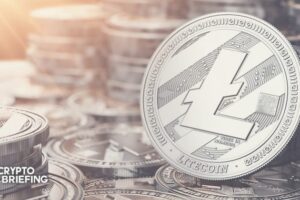
Key Takeaways
The Solend community has passed a proposal to invalidate an earlier plan to take over a whale’s account.
Solend had urged users to vote on a proposal that suggested intercepting the wallet of the protocol’s largest user to execute an over-the-counter liquidation, but it faced backlash.
It’s the latest stress test to come out of a market in decline. SOL has since bounced, limiting the risk of the whale’s liquidation.
Share this article
It’s the latest major controversy to arise due to rocky conditions in the cryptocurrency market.
Solend Exposes DeFi Governance Flaws
Solend is facing its biggest PR disaster yet after it rushed through a DeFi governance vote to take over a whale’s account. In a move that seemingly acknowledges the blunder, the Solend community has since voted on a proposal to scrap the original plan.
Solana’s top lending protocol faced criticism over the weekend after it urged its community to vote on a governance proposal to take over its biggest user’s account. Solend had devised the scheme, dubbed SLND1, after noticing that a so-called “whale” was facing a liquidation if SOL dropped as low as $22.30. The whale had deposited $170 million worth of SOL collateral to borrow $108 million in stablecoins, and they stood to lose $21 million if a liquidation went through. Solend noted that a liquidation could cause “chaos” on Solana because the low liquidity would potentially lead to a cascading effect, adding that big liquidation events had caused network clogs in the past. The solution, the team argued, was to add new margin requirements for users with large deposits to make liquidations less likely, and take over the whale’s account to execute an over-the-counter liquidation. The proposal passed in 24 hours, helped by one wallet representing 90% of the vote, but not without backlash.
Community Backtracks on Account Intervention Plan
While the proposal was voted in, many members of the crypto community slammed Solend for the plan shortly after it went live. “Message to the @solendprotocol devs… I am fucking begging you not to do this… I know you’re scared. I know your VCs are pressuring you. I know some of your Solend bag holders are pressuring you… But this is flat out wrong and you know that,” wrote a pseudonymous Twitter user identifying as ThePeoplesDegen. “Ethos/Values > Money… I really hope the devs get sued into oblivion and this sets a hard precedent,” added THORmaximalist. UpOnly podcast co-host Cobie assessed the proposal with a succinct tweet: “Comedy.”
In the fallout from the SLND1 fiasco, Solend presented the community with a second proposal that suggests invalidating the original proposal and devising a new plan that would not resort to taking over someone’s account without permission. “We’ve been listening to your criticisms about SLND1 and the way in which it was conducted,” the proposal dubbed SLND2 read. The vote for SLND2 passed early Monday, meaning the community will now have more time to come up with a plan to avoid a possible crisis in a liquidation event.
Although the crypto market has faced a dramatic downturn wreaking havoc across the ecosystem this month, Solana enjoyed a bounce this weekend on the tails of other major assets like Bitcoin and Ethereum. Since SOL is used as the base asset and collateral for Solana DeFi, that’s good news for Solend—and the whale it was planning to liquidate.
Disclosure: At the time of writing, the author of this piece owned ETH and several other cryptocurrencies.
Share this article
The information on or accessed through this website is obtained from independent sources we believe to be accurate and reliable, but Decentral Media, Inc. makes no representation or warranty as to the timeliness, completeness, or accuracy of any information on or accessed through this website. Decentral Media, Inc. is not an investment advisor. We do not give personalized investment advice or other financial advice. The information on this website is subject to change without notice. Some or all of the information on this website may become outdated, or it may be or become incomplete or inaccurate. We may, but are not obligated to, update any outdated, incomplete, or inaccurate information.
You should never make an investment decision on an ICO, IEO, or other investment based on the information on this website, and you should never interpret or otherwise rely on any of the information on this website as investment advice. We strongly recommend that you consult a licensed investment advisor or other qualified financial professional if you are seeking investment advice on an ICO, IEO, or other investment. We do not accept compensation in any form for analyzing or reporting on any ICO, IEO, cryptocurrency, currency, tokenized sales, securities, or commodities.
See full terms and conditions.















